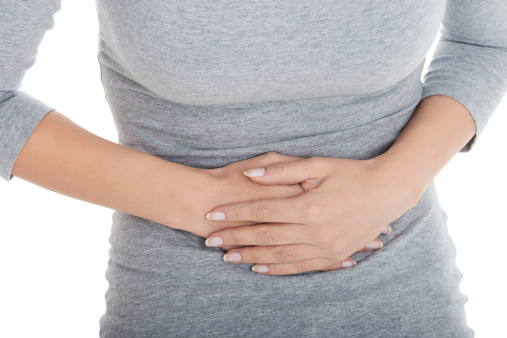 One of my patients recently came to me with what he considered an “embarrassing” issue. After asking a series of questions, I narrowed it down to the fact that my patient had trouble going to the bathroom. Finally, I got him to admit to what he dubbed, “The Big C.”
One of my patients recently came to me with what he considered an “embarrassing” issue. After asking a series of questions, I narrowed it down to the fact that my patient had trouble going to the bathroom. Finally, I got him to admit to what he dubbed, “The Big C.”
“Are you constipated?” I asked, to which his face turned a bright red and he nodded. I tell my patients all the time—constipation is not a shameful or embarrassing topic.
As awkward as it may be to talk about, you are not alone concerning this issue. There is an estimated 2.5 million constipation-related hospital visits per year in the U.S. and healthcare costs surrounding constipation treatment in America total $6.9 billion annually.
Causes, Signs, and Symptoms of Constipation
Constipation generally occurs when you have less than three bowel movements each week. The stool typically becomes hard and will be incredibly difficult to pass. The causes could be any the following:
- Lack of water intake
- Lack of fiber in the diet
- A sudden change in one’s diet or routine
- Not enough exercise
- Consuming high amounts of dairy
- Stress
- Consuming large amounts of medicines (painkillers)
- Depression
- Colon cancer
- Eating disorders
- Prolonging the urge to release a bowel movement
Causes can vary from person to person, but it’s always a good idea to consult your doctor about your diet and lifestyle. See what foods can be added and what can be eliminated to avoid constipation.The following are common symptoms of constipation:
- Difficulty passing bowel movements
- Hard and small stools
- You do not feel that your bowels are completely empty after removing them
- Abdominal pain or a swollen abdomen
- Vomiting
Natural Treatments for Constipation
1. Eliminate high-gas foods: If you are constantly passing gas or feeling bloated, you should eliminate carbon beverages, as well as certain raw fruits and vegetables, like cabbage, broccoli, and cauliflower.
2. Eliminate gluten: Constipation and digestive issues could be a sign of gluten intolerance. Try eliminating gluten from your diet to see if it makes a difference with your bowel movements.
3. Eat at regular times: Schedule your meals at similar times each day. The more your body becomes accustomed to your eating habits, the more regular your bowel movements will be. Try to eat smaller portions more frequently throughout the day to keep your system regular. Eating meals full of fiber will help push the food through your intestines.
4. Exercise regularly: Stress and depression can cause constipation. Exercising on a regular basis will help relieve stress and depression while stimulating normal contractions in your intestines.
Allopathic Treatments for Constipation
1. Acupuncture: Stimulating acupressure points on a regular basis can help relieve constipation.
2. Herbs: Research has shown that stimulant herbs can provide relief for constipation; beneficial herbs include senna, cascara sagrada, aloe vera, and sorrel.
3. Probiotics: Consuming adequate levels of probiotics can help you stay regular.
4. Hypnosis: Some say constipation and serious digestive issues can be healed through hypnosis—of course, it’s always best to consult with your doctor first if constipation is persistent.
Five Foods to Avoid If You Are Constipated
1. Milk chocolate: The milk found in chocolate can cause constipation in people who are sensitive to dairy products. If you consume too much milk chocolate, the fat content found in the chocolate might cause a backup in your system.
2. Dairy products: The lactose in dairy can cause gas and excessive bloating.
3. Red meat: Because it is high in fat, it will take significantly longer to digest and track the progress. The protein found in red meat is also very tough for the digestive system to handle, especially if consumption is large in quantity.
4. Bananas: Green bananas have large amounts of starch, which if consumed in high volumes, can be difficult to digest.
5. Caffeine: It can improve your digestive system if you’re hydrated, but if you’re dehydrated, it can make you constipated.
Five Foods to Consume If You Are Constipated
1. Prunes: They’re high in insoluble fiber and sorbitol, which are both natural laxatives.
2. Beans: They contain 10 grams of fiber per serving; the soluble and insoluble fiber will help with the digestive process of food in your system.
3. Kiwi: One kiwi contains 2.5 grams of fiber and loads of vitamins and minerals—it is very beneficial for your intestines.
4. Rye bread: It contains large amounts of fiber, which is beneficial for the bowels and for the heart.
5. Pears: Who knew that eating this delicious fruit could help regulate your digestive system? Make sure to eat the pear with its skin on—eaten whole, this fruit contains six grams of fiber!
See More :
- Four Top Constipation Remedies
- Senna: The Herb That Relieves Constipation
- One Unique Way to Relieve Constipation
Sources:
Gavura, S., “Constipation Myths and Facts,” Science-Based Medicine web site, October 27, 2011; https://www.sciencebasedmedicine.org/constipation-myths-and-facts/.
“Constipation,” Wikipedia web site; http://en.wikipedia.org/wiki/Constipation; last accessed May 20, 2015.
“Constipation: Symptoms,” Mayo Clinic web site, August 31, 2013; http://www.mayoclinic.org/diseases-conditions/constipation/basics/symptoms/con-20032773.
“The Basics of Constipation,” WebMD web site; http://www.webmd.com/digestive-disorders/digestive-diseases-constipation, last accessed May 20, 2015.
“Top Constipation Foods: 5 Foods to Avoid and 5 to Eat,” MedicineNet web site; http://www.medicinenet.com/constipation_foods_5_foods_to_avoid_and_5_to_eat/views.htm, last accessed May 20, 2015.
